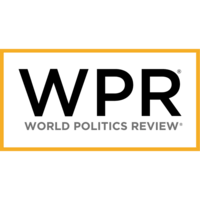Hi everyone, this is Elliot Waldman, WPR’s editor-in-chief. Welcome back to our Weekly Review, where we recap the highlights from our coverage this week and preview what’s on deck.
If you have any comments or feedback, just hit reply to send them along.
Top Stories
Here are some of the week’s major developments that we covered in our Daily Review newsletter. (If you don’t already receive the Daily Review, you can adjust your settings here.)
Ecuadorians Vote for Sovereignty: In a major setback for President Daniel Noboa, voters in Ecuador on Sunday rejected a proposal to allow the return of foreign military bases. With almost 90 percent of ballots counted, nearly two-thirds voted “no” on the measure. Noboa had backed the referendum as necessary to help Ecuador’s armed forces fight back against the drug cartels that have engulfed the country in violence. Had it passed, it would have paved the way for U.S. forces to return to an airbase in Manta, on the Pacific coast, which was an American hub for counternarcotics operations until 2008.
The result was partly due to unpopular decisions that Noboa has taken recently, including his elimination of a popular diesel subsidy that resulted in higher fuel prices. But analysts also point to residual unease in the country over U.S. military involvement in the past. When the U.S. base at Manta was active, it faced complaints from community groups about alleged abuses committed by American personnel such as harassment and destruction of local vessels, as well as the expansion of the sex work industry near the base. (Read more here.)
An Eventful—and Uncomfortable—U.S.-Saudi Summit: President Donald Trump rolled out the red carpet this week for Saudi Arabia’s crown prince and de facto leader, Mohammed bin Salman, who made his first visit to the White House in more than seven years. MBS, as the crown prince is widely known, came away from the meeting with plenty of goodies as the two leaders brushed off concerns about the kingdom’s long history of human rights abuses.
For Saudi Arabia, concerns about the reliability of U.S. security guarantees were top of mind, particularly after the Houthi missile and drone strikes on Saudi oil facilities in 2019. More recently, Israeli and Iranian airstrikes against Qatar earlier this year deepened Riyadh’s concerns about its own security vulnerabilities.To help assuage those worries, Trump signed a new defense partnership with MBS and agreed to elevate Saudi Arabia to the status of a major non-NATO ally. Most crucially, he agreed to sell advanced F-35 fighter jets to the kingdom, overriding Pentagon concerns that China could then acquire the sensitive technology. (Read more here.)
Subscribe to WPR to read the rest.
Become a paying subscriber of World Politics Review to get access to this post and other subscriber-only content.
UpgradeA subscription gets you:
- Immediate access to the full archives (20,000+ articles).
- New expert analytical articles every weekday.
- Our Daily and Weekly email newsletters.
- Audio versions of articles.
- AI-powered search and answers engine.
- WPR Insights, ad-free reading, and more.

